
ATLANTA- Delta Air Lines (DL) has launched seven new Saturday-only seasonal routes from Orlando International Airport (MCO), targeting cities like Birmingham (BHM), Omaha (OMA), and Raleigh-Durham (RDU).
The move signals a strategic test by the carrier in one of the nation’s busiest and fastest-growing airports.
Beginning December 20, 2025, Delta will connect Orlando with underserved markets such as Cincinnati (CVG), Columbus (CMH), Kansas City (MCI), and Milwaukee (MKE), operating through April 11, 2026.
Though limited in frequency, the move raises questions about whether Orlando is quietly becoming a focus city for Delta.
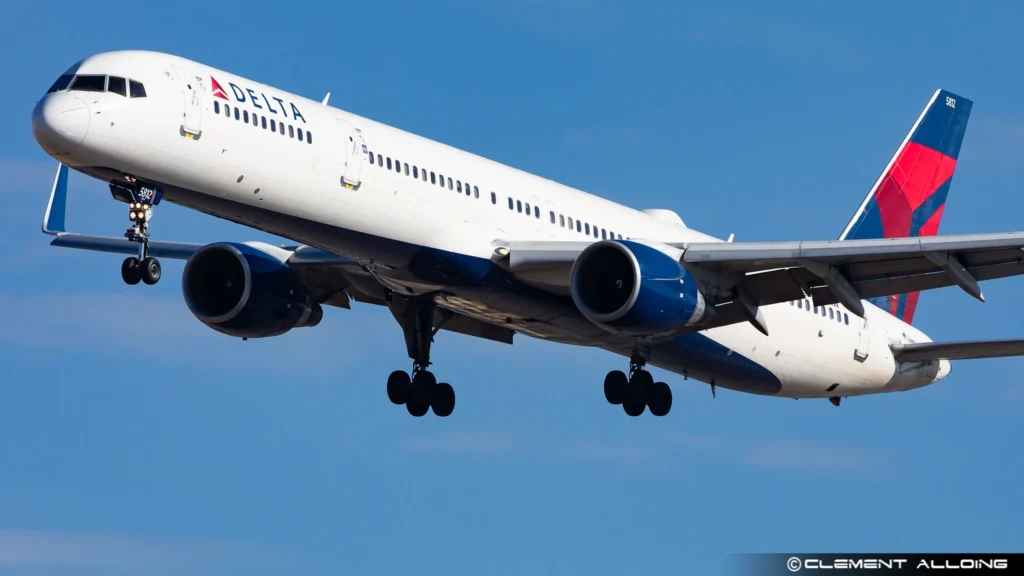 Photo: Clément Alloing
Photo: Clément AlloingDelta Air Lines Hub
Delta’s decision to operate point-to-point flights from Orlando deviates from its standard hub-and-spoke model centered around Atlanta (ATL), Minneapolis-St. Paul (MSP), Salt Lake City (SLC), and Detroit (DTW).
Instead, these new routes represent a calculated bet on Orlando’s strong year-round demand and growing market presence.
Orlando International Airport (MCO) served over 58 million passengers in 2023 and continues to invest in infrastructure, including new terminals and lounges.
This growth positions MCO as a compelling origin point, not just a destination, especially for leisure traffic.
The selected cities, ranging from Milwaukee to Raleigh-Durham, offer solid catchment areas, limited nonstop competition, and established Delta loyalty, making them ripe for experimentation.
By choosing Saturday-only operations, Delta minimizes fleet disruption during weekdays while maximizing aircraft utilization on a traditionally low-demand business travel day.
These routes likely involve quick turnarounds by regional partners, allowing Delta to test markets without establishing full-time bases or committing significant resources, Live and Let’s Fly.
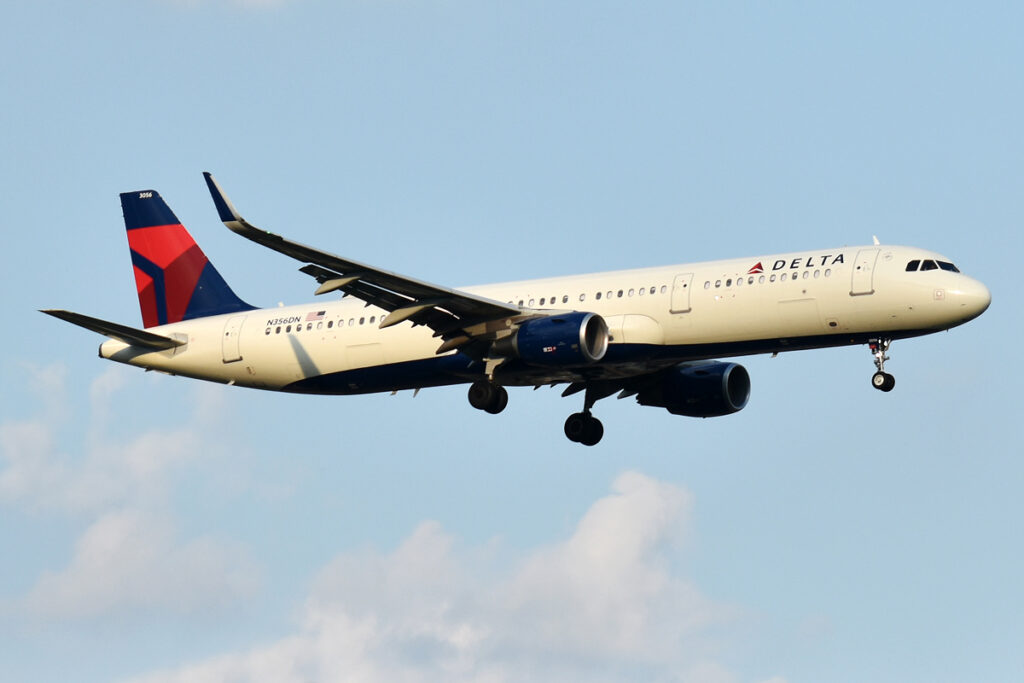 Photo: By Anna Zvereva from Tallinn, Estonia – Delta Air Lines, N356DN, Airbus A321-211, CC BY-SA 2.0, https://commons.wikimedia.org/w/index.php?curid=87516894
Photo: By Anna Zvereva from Tallinn, Estonia – Delta Air Lines, N356DN, Airbus A321-211, CC BY-SA 2.0, https://commons.wikimedia.org/w/index.php?curid=87516894Present Strategy
Delta is no stranger to non-hub experimentation. In 2018, it launched nonstop service from Indianapolis (IND) to Paris (CDG), and previously connected Pittsburgh (PIT) to Paris on a Boeing 757.
These high-profile routes targeted international demand and local ambition but were quietly removed during the pandemic and haven’t returned.
Such efforts highlight Delta’s willingness to act creatively when the math works, even if the airline quickly retracts when it doesn’t.
Delta’s Orlando strategy walks the line between flexibility and risk, testing new demand pools with minimal exposure.
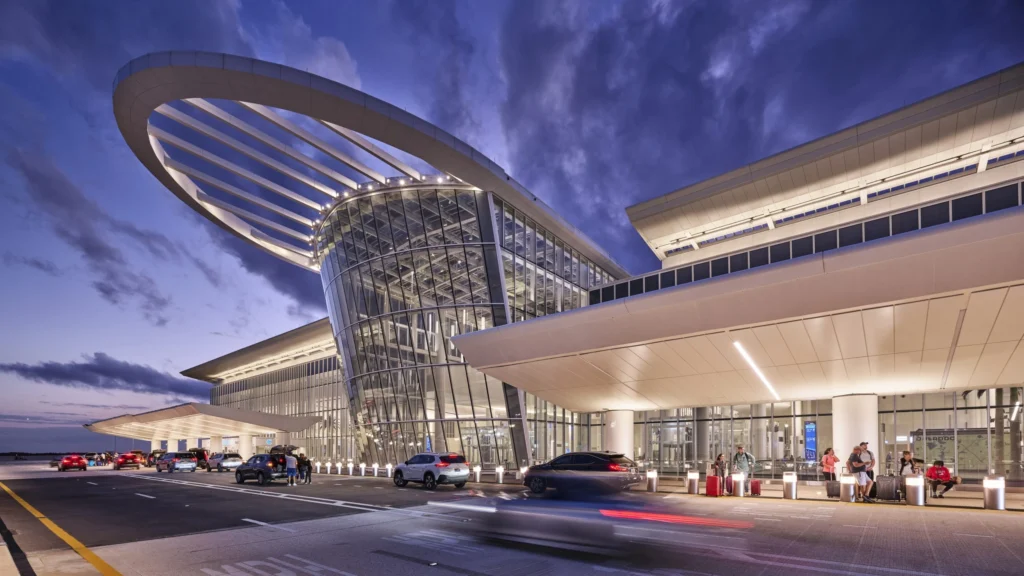 Orlando International Airport Terminal C. Photo: HNTB
Orlando International Airport Terminal C. Photo: HNTBWhy Orlando Fits
Airlines such as Southwest (WN), JetBlue (B6), and Frontier (F9) already operate major operations at MCO, drawn by its consistent leisure demand and infrastructure.
Orlando is not just a seasonal hotspot; it hosts year-round conventions, events, and family travelers, making it uniquely stable among U.S. leisure markets.
Delta already accounts for approximately 12% of Orlando’s traffic as of late 2024. Competing with low-cost carriers (LCCs) and ultra low-cost carriers (ULCCs) like Spirit and Frontier, Delta’s challenge is to fill planes while maintaining financial viability in a price-sensitive environment.
Though no official announcement has been made, Delta’s actions resemble a textbook focus city play, limited routes, smart scheduling, and strategic market targeting without declaring a hub.
The airline appears to be evaluating Orlando as a template for future similar moves in cities such as Tampa (TPA), San Diego (SAN), or Nashville (BNA).
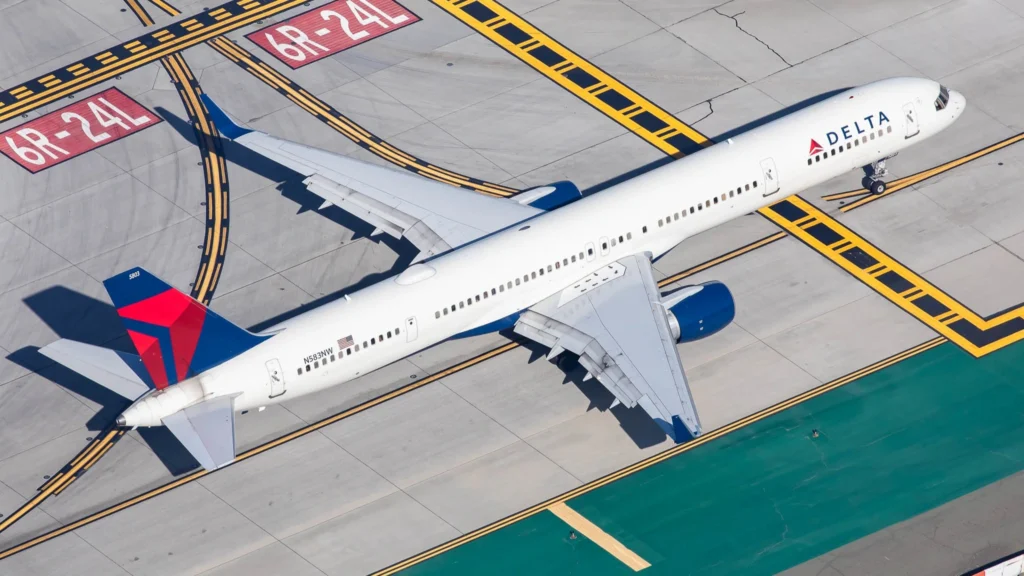 Photo: Clément Alloing
Photo: Clément AlloingCompetitive Landscape
What sets Orlando apart from other focus city attempts, such as American Airlines’ retreat in Austin (AUS), is its resilience and balance of inbound and outbound traffic.
Unlike Austin’s short-lived experiment, Orlando offers dependable volume and low seasonal volatility, helping Delta reduce the risks tied to network expansion.
Furthermore, MCO provides a testing ground to compete directly with LCCs on high-demand, underserved routes.
The risk is that even with high load factors, yields could be thin due to fare compression. Success in this model will depend on whether Delta can generate sustainable margins despite lower average fares.
The fact that this launch is limited to Saturdays underscores Delta’s cautious optimism. It’s using otherwise idle aircraft to probe demand with minimal downside, perfect for a market that’s both valuable and competitive.
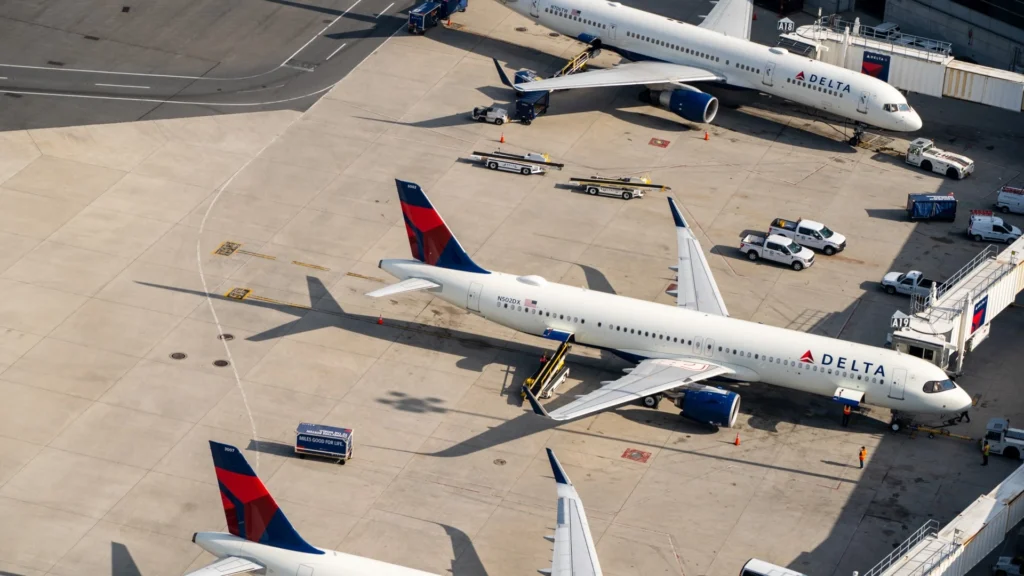 Photo: Delta Air Lines
Photo: Delta Air LinesConclusion
Delta’s seven new routes from Orlando may seem modest on paper, but the strategic undercurrent is clear.
Whether or not Delta brands Orlando as a focus city, it is already operating like one, leveraging high leisure demand, asset efficiency, and calculated market testing.
This could be the beginning of a wider shift in how legacy carriers view non-hub airports. If the Orlando model proves viable, expect similar strategies in other leisure-heavy, infrastructure-rich cities.
For now, Delta’s move is small in scale but large in implication: testing the waters for a new kind of network strategy that blends traditional strengths with agile, opportunistic deployment.
Stay tuned with us. Further, follow us on social media for the latest updates.
Join us on Telegram Group for the Latest Aviation Updates. Subsequently, follow us on Google News
Delta Air Lines Adds 5 More Routes from Austin Hub
The post Delta Air Lines Eyes A Hub from this City with 7 New Routes appeared first on Aviation A2Z.














